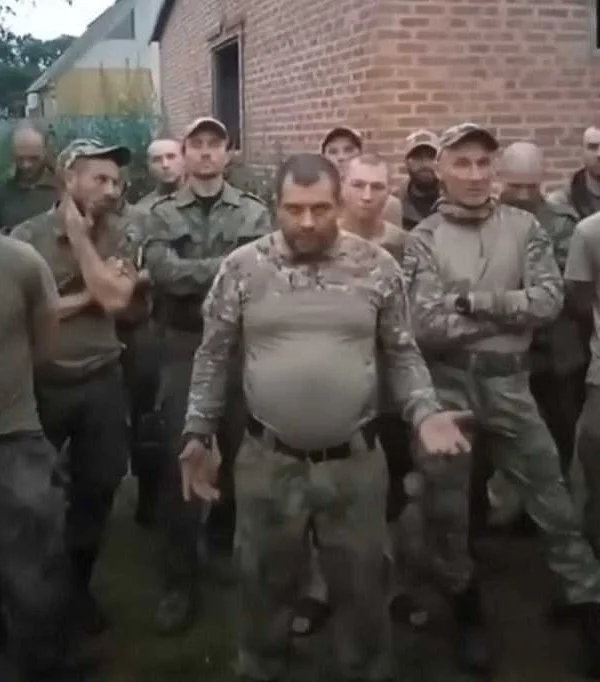The 150-Year Battle Against Drunkenness in Russia: A Historical Perspective
Содержимое
Explore the fascinating history of Russia’s 150-year battle against drunkenness, from tsarist crackdowns to Soviet temperance campaigns and modern alcohol control policies. Discover how this ongoing fight has shaped social attitudes, government policies, and public health in Russia.
For over a century and a half, Russia has been engaged in a relentless battle against the pervasive issue of drunkenness. From the tsarist era to the present day, this battle has taken on various forms, involving government policies, social campaigns, and even religious movements. The fight against alcohol abuse has been deeply rooted in Russian society, reflecting the profound impact that excessive drinking has had on the nation’s health, economy, and social fabric.
One of the earliest attempts to combat drunkenness in Russia can be traced back to the reign of Tsar Alexander II in the 19th century. Concerned about the detrimental effects of alcohol on the population, the tsar implemented a series of measures aimed at curbing excessive drinking. These included the establishment of state-owned vodka distilleries, stricter regulations on taverns, and the introduction of sobriety campaigns among the peasantry.
However, the battle against drunkenness intensified during the Soviet era, when the new communist government sought to create a “new Soviet man” who would be free from the vices of the past. The Soviet regime implemented a wide range of measures to tackle alcohol abuse, including the introduction of strict regulations on alcohol production and sales, the promotion of temperance societies, and the implementation of propaganda campaigns highlighting the negative consequences of excessive drinking.
Despite these efforts, alcohol abuse remained a deeply ingrained problem in Russian society. With the collapse of the Soviet Union in 1991, the battle against drunkenness took on a new dimension. The transition to a market economy resulted in a surge in alcohol availability, leading to a sharp increase in alcohol-related health issues and social problems. In response, the Russian government implemented new policies to tackle the issue, including increased taxation on alcohol, stricter regulations on alcohol sales, and the promotion of healthier lifestyles.
Today, the battle against drunkenness in Russia continues, with the government and various organizations working together to address this persistent issue. While progress has been made in reducing alcohol consumption and improving public health, the deep-seated cultural and societal factors that contribute to excessive drinking still pose significant challenges. Efforts to combat drunkenness in Russia require a multi-faceted approach that combines government policies, educational campaigns, and community engagement, in order to create lasting change and build a healthier society.
Background of Drunkenness in Russia

In Russia, the issue of drunkenness has a long and complex history that spans over 150 years. The problem of excessive alcohol consumption has deep roots in Russian society and has been intertwined with cultural, social, and economic factors.
Historically, alcohol has played a significant role in Russian culture and traditions. It has been a part of celebrations, religious ceremonies, and everyday life. However, the excessive consumption of alcohol has also led to numerous social and health problems.
During the 19th century, alcoholism emerged as a major concern in Russia. The rapid urbanization and industrialization of the country brought about significant changes in lifestyle and contributed to the rise of alcohol-related issues. The availability of cheap and low-quality alcohol further exacerbated the problem.
The detrimental effects of alcohol abuse became evident in various aspects of society. Drunkenness led to increased crime rates, domestic violence, and health problems. As the negative consequences became more apparent, efforts were made to address the issue.
The government introduced a series of measures to tackle alcoholism, including regulations on alcohol production, distribution, and sales. These measures aimed to control the availability and affordability of alcohol and reduce its social impact.
However, the battle against drunkenness in Russia has proven to be a persistent challenge. Despite the introduction of various policies and initiatives, alcoholism continues to be a significant problem in the country. Factors such as social acceptance of excessive drinking, cultural norms, and economic factors contribute to the ongoing prevalence of alcohol abuse.
Efforts to combat drunkenness in Russia have evolved over the years, with a focus on education, rehabilitation programs, and public awareness campaigns. The government, along with non-governmental organizations and healthcare professionals, continues to work towards reducing alcohol consumption and addressing the underlying issues associated with drunkenness.
Despite the challenges, there have been some positive developments in recent years. Public attitudes towards alcohol consumption are gradually shifting, and the younger generation is increasingly aware of the risks and consequences of excessive drinking. This shift in mindset provides hope for a future with reduced rates of alcohol abuse in Russia.
Efforts to Combat Drunkenness

Over the past 150 years, Russia has implemented various measures to combat the widespread issue of drunkenness. These efforts have aimed to address the social, economic, and health consequences associated with excessive alcohol consumption.
One of the earliest initiatives was the creation of temperance societies in the late 19th century. These organizations promoted abstinence from alcohol and sought to educate the public about the dangers of excessive drinking. Their activities included public lectures, pamphlets, and advocacy for stricter alcohol regulations.
In the 20th century, the Soviet government took a more authoritarian approach to tackling drunkenness. Under the leadership of leaders like Vladimir Lenin and Joseph Stalin, the state implemented strict regulations on alcohol production, distribution, and consumption. The state-owned alcohol industry was heavily regulated and taxed, and efforts were made to promote a sober lifestyle through propaganda campaigns.
However, these measures did not entirely eliminate the problem. In fact, they led to the emergence of an underground market for homemade alcohol, known as samogon, which was often of poor quality and posed significant health risks.
In recent years, the Russian government has adopted a combination of approaches to combat drunkenness. These include increasing taxes on alcohol, restricting alcohol sales and availability, implementing public health campaigns, and providing access to addiction treatment services. Additionally, there has been a growing recognition of the importance of addressing the underlying social and economic factors that contribute to excessive drinking, such as poverty and unemployment.
Efforts to combat drunkenness in Russia continue to evolve as new challenges arise. The battle against alcohol abuse remains a complex and ongoing struggle, requiring a multifaceted approach that addresses the root causes and provides support to individuals and communities affected by excessive drinking.
Disclaimer: This article is for informational purposes only and does not constitute medical or legal advice. It is based on sources believed to be reliable and accurate as of the date of publication.
Successes in the Fight Against Alcoholism
Over the past 150 years, Russia has made significant progress in its battle against alcoholism. Various government initiatives and social movements have contributed to the reduction of alcohol consumption and the promotion of a healthier lifestyle among the population.
One of the major successes in the fight against alcoholism has been the introduction of stricter regulations on alcohol production and sales. The government has implemented higher taxes on alcohol products, making them less affordable and discouraging excessive consumption. Additionally, there have been limitations on advertising and availability of alcohol, reducing its visibility and accessibility to the public.
Another important achievement has been the establishment of alcohol treatment centers and rehabilitation programs. These centers provide medical assistance, counseling, and support to individuals struggling with alcohol addiction. They offer a safe and welcoming environment for those seeking help, helping them overcome their addiction and reintegrate into society.
Education and awareness campaigns have also played a crucial role in the fight against alcoholism. By informing the public about the negative health effects of alcohol abuse and promoting responsible drinking habits, these campaigns have helped change attitudes and behaviors towards alcohol. They have emphasized the importance of moderation and moderation in alcohol consumption, encouraging healthier choices and lifestyles.
Furthermore, the Russian government has invested in research and development of alternative beverages and recreational activities that can serve as substitutes for alcohol. This has provided individuals with alternative options for leisure and relaxation, reducing the reliance on alcohol as a means of escapism or stress relief.
While the battle against alcoholism is ongoing, these successes indicate a positive shift in attitudes and behaviors regarding alcohol consumption in Russia. The concerted efforts of the government, social organizations, and individuals have played a pivotal role in addressing alcoholism and promoting a healthier society.
Challenges in Eliminating Drunkenness

Despite Russia’s extensive efforts to combat drunkenness over the past 150 years, the battle has been far from easy. There are several challenges that have impeded progress in eliminating alcohol abuse in the country.
Deep-rooted cultural acceptance: One of the main obstacles in addressing the issue of drunkenness in Russia is the deep-rooted cultural acceptance of alcohol consumption. For centuries, alcohol has been an integral part of Russian social gatherings and celebrations. It is often seen as a way to cope with the harsh realities of life. This cultural acceptance makes it difficult to change the attitudes and behaviors towards alcohol.
Economic dependence on alcohol industry: The alcohol industry has long been a significant source of revenue for the Russian government. Taxes on alcohol sales contribute a substantial portion to the national budget. This economic dependence poses a challenge to implementing strict regulations and measures against alcohol abuse, as it could potentially harm the economy.
Widespread availability of cheap alcohol: Another challenge in combating drunkenness is the widespread availability of cheap alcohol. In recent years, the market has been flooded with low-priced alcoholic beverages, making them easily accessible to people of all income levels. This affordability contributes to increased alcohol consumption, particularly among the lower socioeconomic groups, leading to higher rates of alcohol-related problems.
Limited access to effective treatment and support: While efforts have been made to provide treatment and support for those struggling with alcohol addiction, the accessibility and availability of these services remain limited in many regions of Russia. The lack of resources and infrastructure, along with the stigma associated with seeking help for alcohol-related issues, make it challenging for individuals to access the necessary support to overcome their addiction.
Insufficient public awareness and education: Despite the gravity of the alcohol abuse problem in Russia, there is still a lack of sufficient public awareness and education on the dangers of excessive alcohol consumption. Many people remain unaware of the long-term health consequences and social implications associated with heavy drinking. Without proper education and awareness campaigns, it is difficult to instigate behavioral changes and promote a healthier drinking culture.
Corruption and ineffective enforcement: Corruption within law enforcement agencies and ineffective enforcement of regulations have further hindered the efforts to eliminate drunkenness in Russia. The illicit alcohol market, including the production and sale of counterfeit and bootleg alcohol, continues to thrive due to lax enforcement measures. This not only perpetuates the availability of cheap and potentially dangerous alcohol but also undermines the effectiveness of government policies aimed at reducing alcohol abuse.
In conclusion, the battle against drunkenness in Russia faces numerous challenges, including deeply ingrained cultural acceptance, economic dependence on the alcohol industry, widespread availability of cheap alcohol, limited access to treatment and support, insufficient public awareness and education, and corruption in enforcement. Addressing these challenges requires a multi-faceted approach that encompasses effective policies, increased resources, and comprehensive education campaigns.